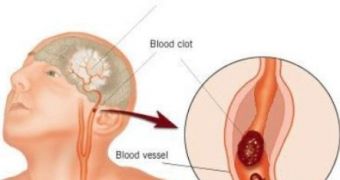A new study conducted by the American Academy of Neurology, concluded that people infected with human immunodeficiency virus (HIV) risk having a stroke three times more than those not affected by HIV.
To get to this conclusion, the scientists made a review of all the stroke hospitalizations in the US over the past ten years.
They saw that the number of stroke diagnoses in the general population decreased by 71,742 strokes overall, but stroke diagnosis among HIV-positive people increased by 537 more strokes from the start of the decade.
Another intriguing fact is that among people with HIV, the results showed an increase in ischemic strokes but no increase in hemorrhagic strokes.
Bruce Ovbiagele, MD, MSc, Professor of Neurosciences at the University of California, San Diego and a member of the American Academy of Neurology, said that the “findings showed that stroke hospitalizations in the United States decreased by seven percent in the general population within the last decade while stroke hospitalizations for people with HIV rose 67 percent.
“The average age for a stroke among people with HIV was in the 50s, which is much lower than that of those without HIV.
“This finding suggests that HIV or HIV treatments may be directly related to stroke occurrence," he added.
“Indeed, one potential explanation is the increasingly widespread use of combination antiretroviral medications in HIV-infected people.
“While these therapies have greatly increased life expectancy, they may boost the presence of risk factors associated with stroke.
“Another possibility is that longer exposure to HIV as a result of greater survival, even at low viral load levels, may allow for the virus to increase stroke risk.”
An ischemic stroke is the death of an area of brain tissue (cerebral infarction) resulting from an insufficient supply of blood and oxygen to the brain due to blockage of an artery, and it is also the most common type of stroke.
Almost one in three people recover all or most of normal function after an ischemic stroke.
This new study is published in the January 19, 2011, online issue of Neurology, the medical journal of the American Academy of Neurology.

 14 DAY TRIAL //
14 DAY TRIAL //